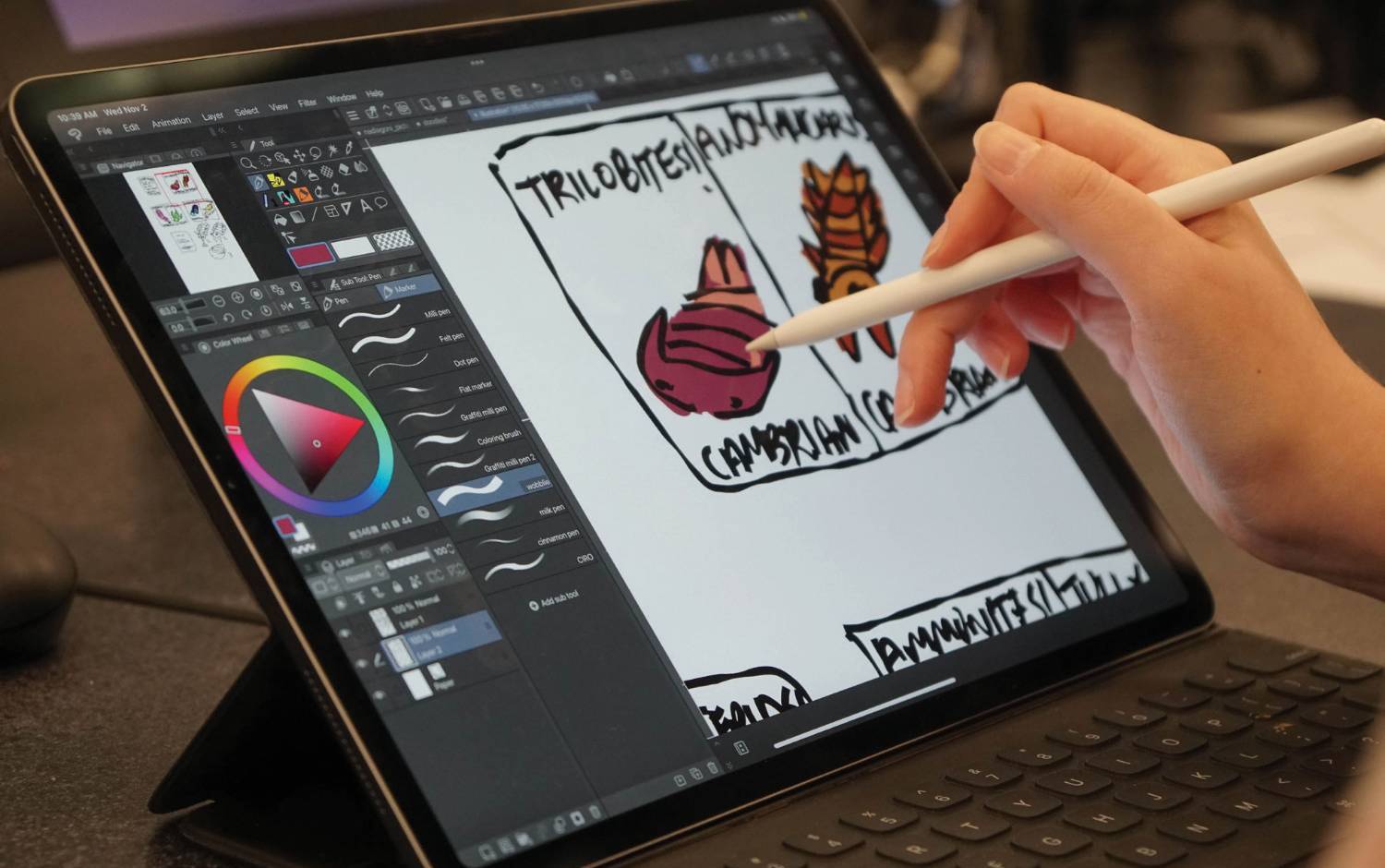Goal 3

Partner with the creative industries to further the creation of digital tools, processes, and platforms.
Strategy
In order to be responsive to the growing adoption of digital applications and the ongoing changes in consumer preferences, FIT will provide academic programming and research to better elucidate the elements of the digital-based economy.
Context
Due to the impact of digital applications and the shift in consumer buying behaviors post-COVID 19, FIT will need to prepare students to learn from a wide range of technological advancements affecting the way brands create, manufacture, distribute, and sell products to meet organizational changes and consumer buying preferences. Thus, FIT must create a means to integrate learning between and among schools, programs, and departments.
Initiatives
A) Quick Wins (6–12 months)
- Provide students with an opportunity to experience the first-hand impact of the industry’s shift post-COVID by incorporating projects related to the use of digital tools, the evolution of consumer buying preferences, and the renewed focus for sustainable products. (This will be a pilot program.)
- Expand the college’s sustainability focus by incorporating sustainability into existing courses and projects that can relate to the FIT DTech Lab retailing initiatives. One of the main projects in the lab is to produce a fully sustainable fashion brand. (This will be a pilot program.).
- Pursue collegewide demand chain efforts that promote collaboration across departments, programs, and schools by hosting events and conversations such as “Breaking Down Silos with Transdisciplinary Learning” and “Let’s Spark Collaborative Learning.”
- Pursue shared resource opportunities that utilize technology to encourage collaboration across departments, programs, and schools.
B) Innovation Imperatives (1–3 years)
- Create an interdisciplinary course compatible with activities and learning outcomes achieved in the FIT DTech Lab retail project.
- Review current coursework in the areas of Textile Development and Marketing, Production Management, and International Trade and Marketing to ensure all aspects of the demand chain are explored in a transdisciplinary structure.
- Identify and, where appropriate, expand faculty development support mechanisms to assist faculty adaption to the impact of change in the creative industries.
C) Blue Sky (3–5 years)
- Launch focused foundation courses/programs that broaden a student’s choices while also ensuring consistency in the overall learning experience. Entering students will be afforded the opportunity to explore related disciplines before declaring a major. The special foundational coursework could occur during the first semester before students have started their selected specializations. This program could be managed at the school or department levels.
Think Tank Members
Robin Baxter, Assistant Professor, Fashion Business Management
Jennifer Bentivegna, Assistant Professor, Fashion Business Management
Peter W. Chan, Associate Professor, Production Management: Fashion and Related Industries
Sonja Chapman, Associate Professor, Home Products Development
Michael Ferraro, Executive Director, FIT DTech Lab
Md. Imranul Islam, Assistant Professor, Textile Development and Marketing
Alexander Nagel, Assistant Professor, History of Art
Tom Scott, Assistant Professor, Fashion Design
Calvin Williamson, Professor, Science and Math, and President of the Faculty Senate
Lauren Zodel, Assistant Professor, Fashion Design—Art